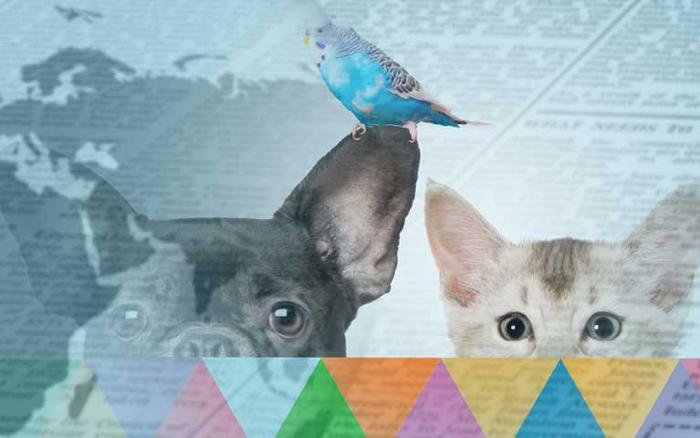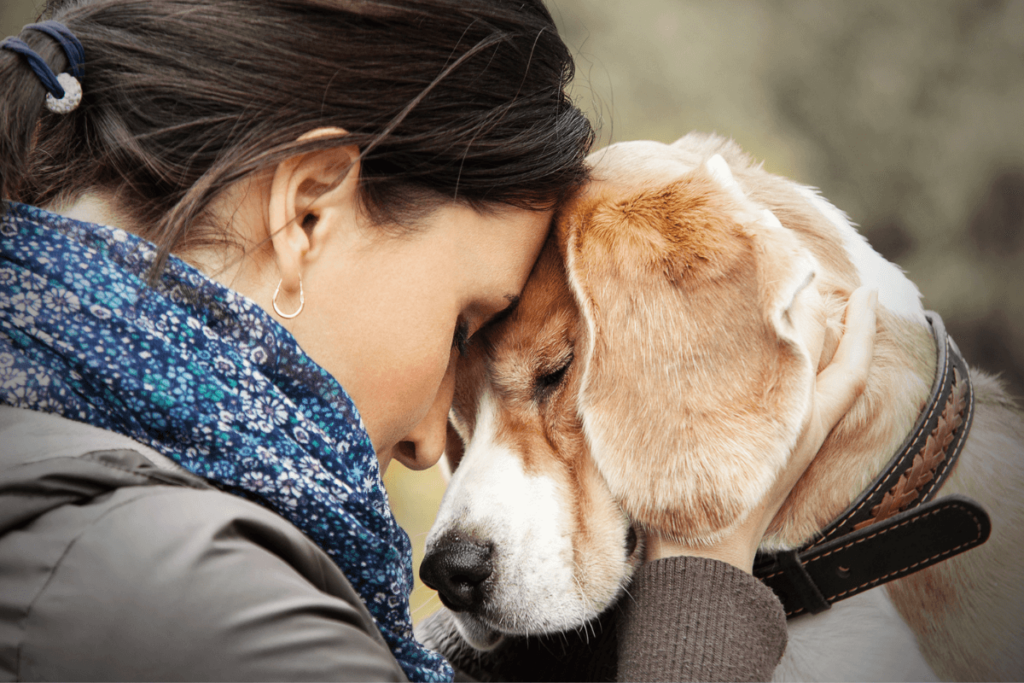

Saying Goodbye Together: When Love Transcends Species
Those of us who live with a dog know that they are not “just an animal.” They are part of our family—a life companion who joins us on trips, in celebrations, and through difficult days. That is why, when the time comes to say farewell to a loved one, a simple yet painful question arises: Why can’t I bring my dog with me to the funeral home or wake?
A Social Shift That Can No Longer Be Ignored
There are more than nine million registered dogs in Spain. Half of all households include a companion animal, and most guardians consider them a full member of the family. Society has changed, but the policies of many spaces—such as funeral homes—do not yet reflect this reality.
More and more families are encountering the same situation: they must leave their dog outside, even when that animal was part of the deceased’s life. Imagine the pain of someone who must say goodbye to a partner or family member without the dog they shared their life with. Or the confusion felt by the animal, who also experiences the loss.
The Emotional Value of Their Presence
Multiple studies show that animals also experience grief: they exhibit sadness, loss of appetite, and searching behaviors. Their presence, meanwhile, can be a powerful source of emotional support for people, helping to reduce anxiety and feelings of emptiness. Sharing that final farewell not only brings comfort—it humanizes both grief and the environment in which it is expressed.
A Cultural Shift and an Opportunity for the Funeral Sector
Today we can travel by train or plane, stay in hotels, shop in stores, or visit museums accompanied by our dogs. In some cemeteries, especially public ones, dogs are already allowed—a sign of increasing sensitivity and recognition of their role in our lives.
In the funeral sector, PFB Serveis Funeraris, one of the leading funeral service companies in the Barcelona metropolitan area, serving more than 500,000 residents through its seven funeral homes, has become the first entity in the industry to obtain the ITVET™ certification. This innovative, standardized protocol—designed by veterinary experts—guarantees best practices in animal welfare and safety in responsibly managed pet-friendly facilities.
ALTIMA also offers support services for families, including emotional assistance with therapy dogs—yet another example of integrating human and animal wellbeing within the same space.
These initiatives undoubtedly set an important precedent for the sector, demonstrating that sensitivity toward the human–animal bond can translate into rigorous, professional policies that facilitate and regulate public pet-friendly environments.
An Incomplete Legal Framework
Spain’s Animal Welfare Law 7/2023 establishes general principles of dignified treatment, but it does not specifically regulate the presence of animals in funeral homes.
Additionally, the new Royal Decree 409/2025 recognizes the right of access for assistance and service dogs to all public and private spaces.
This emerging reality alone would justify taking the necessary steps to establish a basic regulatory framework guaranteeing the wellbeing of both people and animals in these facilities.
The Importance of the Animal’s Guardian
Despite this, the admission of companion animals in funeral establishments in Spain remains largely restricted. It is often justified by concerns regarding hygiene, potential disturbances, barking, or the possibility that someone with fear or aversion to animals might feel uncomfortable.
In this regard, it is important to note that the first safeguard ensuring a calm and orderly coexistence is the common sense of the animal’s guardian. If their dog is restless, barks, or is fearful, it is unlikely that anyone would consider bringing them and disrupting the atmosphere expected in such situations.
The same applies to a baby crying or to the usual noise generated by conversations in the communal areas of any funeral home or public venue.
A New Social Reality: Toward a New Normal
The funeral sector faces the challenge of bridging the gap between personal and emotional needs at a time when the presence of one’s animal can only help ease pain and bring comfort to friends and family in such difficult moments.
Moreover, grief is often compounded by the worry of leaving a dog alone at home for hours—far from a trivial concern. Addressing this issue is a way to anticipate a growing social demand.
Embracing a pet-friendly policy allows the sector to connect with the hearts of millions. Industries such as retail, transportation, hospitality, and food service are already moving in that direction, aware that there is no turning back.
The funeral sector, like many others, must adapt to this cultural shift and commit to a society in which the human–animal bond is valued in itself and recognized as a meaningful source of support during times of grief.
As Steve Wozniak, co-founder of Apple, said during his most recent visit to Barcelona—when asked whether Siri kept him company while traveling: “Honestly, I prefer people. Your dog or your cat is better than any technology. When my life ends, I will remember my family, a few friends, and my pet… but not Siri or Alexa.”
Author: Ignasi Solana Vinyoles, Secretary General of AEDPAC. Founder of ITVET™ and CEO of Pets2B Consultores.
Source: Article published on 13 November 2025 in Mascotas magazine.





